#SUNY New Paltz
Text
Democracy Matters!
Especially having to do with sexy sexy posters ;)
Congrats Poster Two
0 notes
Text

Old Main, SUNY New Paltz, watercolor, Staats Fasoldt
#watercolor#painting#watercolour art#art#fineart#realism#watercolourpainting#contemporary art#aquarelle#акварель
21 notes
·
View notes
Text
SUNY New Paltz, New York: Students and other protestors who were arrested waited in the parking lot of the Health and Wellness Center, waiting to be processed and taken to one of many jail locations, including ones in New Paltz, Esopus, Highland, Ellenville, Kingston and Wappingers Falls.
At noon on Friday, students walked out of their classes in solidarity against the university’s actions. Approximately 200 students met outside the Haggerty Administration Building, where the offices of President Wheeler’s cabinet and staff are located. Participants chanted “40,000 people dead, you’re arresting kids instead” and sang the protest song Solidarity Forever.
18 notes
·
View notes
Text
small liberal arts college hinge is boring, u run out of little gay ppl in your phone so fast. and if you don’t swipe on people who have clown makeup on in their photos the number of potential matches is halved. at home i had my pick of any little gay person in the area. i could have set my filters soooo specific and it would’ve been like “yes here’s two blonde curly haired she/theys named aerin who you could get to on public transit”. here it’s all over if you don’t want to drive to suny new paltz to fuck a clown
6 notes
·
View notes
Text
by Justin Feldman
As a Jewish student leader at NYU, the widely-viewed House Committee hearing on campus antisemitism last month moved me and articulated the isolation that my Jewish peers and I have been experiencing, simply for partaking in higher education as Jews. From the barring of Rachel Beyda from student government at UCLA in 2015, to Jewish students being removed from a sexual assault survivors organization at SUNY New Paltz in 2022, to last month’s testimonies of exclusion, this discriminatory pattern has proven potent. I’ve unfortunately been no exception.
During the same period President Liz Magill of Penn and President Claudine Gay of Harvard yielded to pressure to resign for their comments on campus “call(s) for Jewish genocide”, I was sent a “Vote to Dismiss and Terminate Position” email, as a Student Justice for New York University’s Graduate Student Council (GSC). My student council president was calling to remove me, one of the only Jewish students in NYU’s student government.
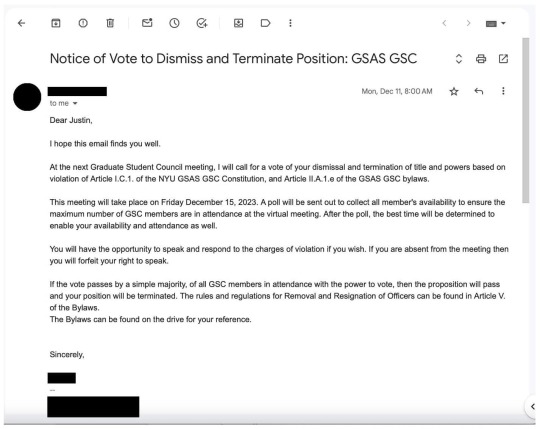
Fabricated “technicalities” brought in bad faith were invoked to falsely accuse me of the unauthorized use of GSC’s name in my resolution, even though my use of the GSC name was solely used as an identifier for my position. I was clear that I was not claiming to speak for anyone but myself and the resolution’s cosponsors.
The true, underlying reason that prompted my removal was that my resolution, which defined and “condemned the endorsement, promotion, or excusing of civilian murder (terrorism) in academia”, undermined the expressions — and by relation the stature — of a number of our radical student senators and their pro-Hamas student backers. In particular, my resolution cited famous justifications, praises, and denials of the October 7th Hamas terrorist attacks by unnamed faculty, student leaders, and student organizations.
Yet, despite indirectly implicating the aforementioned pro-Hamas groups and individuals like the Faculty/Students for Justice in Palestine (FJP/SJP), the resolution also included condemnations of both recent Islamophobic and antisemitic hate crimes and proposed universally beneficial safety measures on hate crime reporting and transparency on free speech.
Not only were these reforms voted down in early stages, contrary to various antisemitic resolutions that passed. I was also singled out by my council president for removal weeks later – simply for voicing opposition to extremist support for terror on campus.
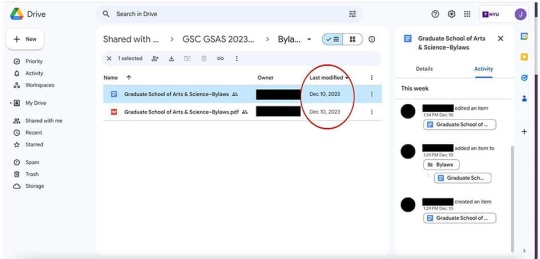
A comparison of articles on “removal” of councilmembers, from the publicly available NYU GSAS GSC Constitution & Bylaws, ratified Spring 2020 (left), and the NYU GSAS GSC Constitution and Bylaws, secretly modified and never voted on for ratification – uploaded to the GSC Drive on December 10, 2023 (right).
Despite notifying administrators and our SGA Elections Commission officials in advance of these offenses, no actions were taken to prevent this inconsistent and discriminatory vote from being carried out. I was removed by less than half of the attending councilmembers.
Unlike Dr. Gay and Dr. Magill, I was not accused of dehumanizing any group, nor subjecting certain people to visible double standards. I, myself, became the target of clear double standards for humanizing myself and my Jewish community amid the backdrop of peers chanting for the very genocidal rhetoric that these former administrators failed to distinguish as violatory.
But sounding this alarm about NYU isn’t just about me, or the brutal and carefully planned murder, rape, and kidnapping of over a thousand Israeli Jewish and Arab citizens. As I stated in my last GSC meeting before being voted out by less than half of our attending council: the October 7th terror attacks targeted citizens of more than 40 different countries across continents that came to Israel.
At NYU, an elite institution with an abundance of global campuses and students attending from all over the world, I could not fathom how so many in my student council – including students from affected countries – could downplay the effect that this moral collapse had on our physical safety.
I witnessed the consequences of unchecked sympathy for terror firsthand. In November at NYU’s Bobst Library, I saw the aftermath of an antisemitic hate crime in real time, where a Jewish student was called slurs and physically assaulted for wearing Israeli and American flags in NYU’s Bobst Library. Security personnel did nothing for minutes on end. The perpetrator was eventually detained by NYPD and released hours later – photographed entering the same library the very next day.
In Washington Square Park, Jewish students (including myself) were physically threatened by an inebriated man multiple times over the course of months, calling us “animals”, saying “f*** all you Jews”, spitting, and threatening physical attack. Many of us were just wearing a kippah or a Magen David necklace around campus.
These examples are drops in the ocean in the vast record of hate crimes that Jewish-Americans disproportionately face, compared to any other minority group per capita in the U.S. and beyond.
As we saw in the case of Liz Magill and Claudine Gay’s resignations, what campus antisemitism reveals is the underlying moral failure of our elite institutions (and society) to equally enforce many things: free speech, fair admissions, transparent financing, just hiring practices, and accountable student conduct.
What my story of removal from NYU’s Graduate Student Council also illuminates is that this fight is just as much a battle to restore my generation’s recognition of a “shared humanity” – including Jewish humanity – as it is a battle to save liberal values in higher education and our country.
22 notes
·
View notes
Text
PEACEFUL PROTESTERS ARE BEING FORCIBLY RESTRAINED AND DRAGGED BY POLICE AT SUNY NEW PALTZ
8 notes
·
View notes
Text
my local university (SUNY New Paltz--if you’re not from NY and never got to access the SUNY system, I’m so sorry) has an AMAZING library with so many books in my field. they have a program where locals can access the library for a low yearly fee and anyway i regularly go in there and take out 12 books at a time with titles like “Poison and Gas and Genocide: a History,” and “Treblinka: the Anatomy of a Death Camp” and the head librarian has started looking at me like “u ok sis?”
answer: lol who even knows
19 notes
·
View notes
Note
wait what’s an ib school
what schools did you get into??
IB is the international baccalaureate program, it has the same rigorousness as AP
I applied to 14 schools and I got into 12 of them
I didn’t get into UMICH or Clemson
but I got into OSU, Union, SUNY Cortland, SUNY New Paltz, UHart, LIU, BU, Pace, Utica University, U of A, Dirty Albs, RIT
2 notes
·
View notes
Text
“My lesbian roommate from SUNY New Paltz, she’s gonna come and do some rhythmic gymnastics” 🤣🤣
3 notes
·
View notes
Text
Bigger Fish, or Bigger Pond?

I really related to this podcast episode because I experienced what they were talking about this past month. I was originally at SUNY New Paltz for a week, which was a pretty big pond for me. About 7,800 students go there and about 2,000 here at STAC. It was such a big culture shock to me and I felt a lack of comfort. I couldn't focus on my courses and there was so much competitiveness within the arts. It didn't feel like it was meant for me, I needed a school that could truly help me thrive and not just being another number on a chart. So I moved back home and now at STAC. I enjoy the smaller pond because it is nice to know my surroundings so well, along with the people (less overwhelming). Some may say I should have stayed in the bigger pond to challenge myself but I know I do my best when I am comfortable and know the people around me. Overall I am happy with my small pond.
0 notes
Text

God Bless
0 notes
Text
Grubhub tackles campus waste
Read the full story from Packaging Digest.
Grubhub expands ReusePass to Virginia Tech and SUNY New Paltz, offering students reusable packaging for food orders. ReusePass helps cut waste, with over 758,000 single-use containers diverted at participating schools last year alone. Robot delivery grows, but reusable packaging is currently not available via robots — future updates may change that.
0 notes
Text
Americans are losing faith in the value of a four-year college degree. A Wall Street Journal poll last year showed that just 42 percent of respondents believed that it was worth the cost, down from 53 percent a decade ago. Prospective students have taken this to heart: undergraduate enrollment is down relative to 2019.
Are young people right to shun college? The answer is complex. College can be a path to a better life—but not always.
High college tuition costs deter many prospective students. Waning student demand and increased financial aid have pushed down tuition in recent years, though even adjusted for inflation it’s still higher than 30 years ago. Additionally, students face the opportunity cost of spending four or more years out of the labor force. Along with lost wages, that’s time that students don’t spend gaining work experience and developing their human capital.
College is also a risky investment. Only 62 percent of students finish a degree within six years, with fewer completing in the customary four. Dropouts see little benefit from whatever coursework they might have completed. The high risk of noncompletion makes college much less of a surefire investment than one might think. Whether college is worth it depends on whether the financial benefits outweigh these costs and risks.
While the median college graduate earns 68 percent more than the typical high school diploma holder, it’s misguided to interpret this differential as the financial “return” on a college degree. College students are different from those who quit education after high school. They might be more motivated, have stronger academic credentials, or hail from different family backgrounds. Some of the 68 percent “college earnings premium” is attributable to these differences, not to the degree itself.
In a recent report for the Foundation for Research on Equal Opportunity (FREOPP), I estimate the financial value of college, adjusting the college earnings premium for these preexisting differences, and then subtracting tuition costs and opportunity costs. Finally, I adjust for the risk that some students take longer than four years to finish their degrees or don’t finish at all.
The results show that college is still worth it—sometimes. The median four-year degree program increases students’ lifetime earnings by $160,000, after accounting for college costs and dropout risk. But not every degree performs so well. Nearly a quarter of four-year programs show no return on investment (ROI), meaning that students typically wind up no better off than if they never went to college. But plenty of degrees deliver returns significantly above the median—and some boost students’ net lifetime earnings by more than $1 million.
Field of study greatly affects ROI. Engineering programs yield a median lifetime return of $949,000, making it the highest-ROI major. Computer science, nursing, and economics are also good financial bets. The median fine-arts program, by contrast, leaves students in the red. The limited earnings gain from these programs isn’t sufficient to compensate students for the costs and risks of college. Other majors with low to negative returns include education, psychology, and English literature.
This isn’t to say that low-ROI majors have no value. But low-to-negative returns for some majors do signal a misalignment of supply and demand. Lots of engineering jobs with fewer qualified candidates mean high wages for engineering majors; fewer jobs in the arts with a surplus of college-trained artists lead to lower salaries for them.
Field of study is not the only factor behind variance in college returns. At New York University, one of the nation’s most expensive schools, the film-studies degree leaves students worse off by about $22,000. But at nearby SUNY–New Paltz, with its much lower tuition, the film program raises net lifetime earnings by roughly $148,000. All else being equal, lower tuition improves the ROI of a degree, even for traditionally low-paying fields.
College students can use FREOPP’s new data to become savvier consumers. Some evidence suggests that students are shifting into higher-ROI fields. In 2022, 123,000 students graduated with a bachelor’s degree in engineering, the highest-ROI major, up from 86,000 such graduates a decade prior. That 43 percent jump dwarfs the overall 9 percent increase in college graduates over the same period.
Students have started to understand that not all college degrees are equal and have adjusted their behavior accordingly. But the onus shouldn’t be entirely on them.
Governments, too, can help ensure that the schools they fund don’t leave students in the red. The federal government is a particular offender in this regard. Uncle Sam gives out over $100 billion in Pell Grant and student loan funding to colleges yearly. About one-third of that money funds programs that fail to make students better off financially. To the extent that a student loan “crisis” exists, it’s concentrated among borrowers who attended one of the nonperforming programs.
For decades, students have been told that college is a surefire ticket to a better life. While college can be a path to upward mobility, that message should come with caveats. Plenty of four-year college pathways aren’t worth the cost, and some even leave students worse off. We should be honest about this reality—and empower students to make more informed decisions.
Preston Cooper is a senior fellow at the Foundation for Research on Equal Opportunity.
0 notes
Photo

Realty Solutions Team | Joe Kuhl 914.776.4576 / Melissa Terman 917.952.7643 | [email protected] ~ Beautiful income producing two-family home in New Paltz. Quiet and serene, but close to everyday essentials with SUNY New Paltz a mere three-minute drive away (1.5 miles). A classic 2-story colonial with one unit on each floor. Each apartment has three bedrooms, den/office, one bathroom and fully equipped kitchens. The first-floor unit has access to the full unfinished basement with laundry facilities, while the upstairs apartment has its own full-size washer dryer stackable units. There’s one communal enclosed porch for relaxing. And, there’s plenty of parking in the rear and almost an acre of level land. Property is fully rented with leases expiring around June 2025. ~ #scarsdale #justlisted #northofnyc #upstateny #upstate #escapenyc #escapemanhattan #escapebrooklyn #hudsonvalley #hudsonvalleyny #hudsonvalleyrealestate #letsgohouseshopping #realestate #catskills #catskillsny #midhudson #midhudsonvalley #saugerties #dutchesscountyny #dutchesscounty #ulstercountyny #ulstercounty #orangecountyny #orangecounty #putnamcountyny #putnamcounty #BTSTeam #sullivancountyny #westchestercounty #westchestercountyny
0 notes
Text
College Notebook: NJAC to add SUNY New Paltz in 2025-26 school year - Trentonian
New Paltz, which is within a three hour drive of the NJAC South Jersey schools, Stockton and Rowan, comes to the NJAC from the State University of New …
0 notes
Text
Unveiling the Passion: A Dialogue between a Composer and Conductor on their Journey to Julliard and the World of Classical Music
by Levi Wise Kenneth Catoe Jr.
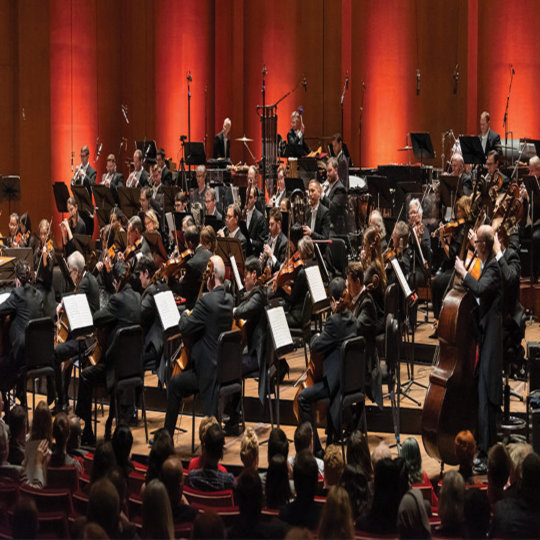
May 1, 2024. (NYC) In the realm of classical music, where melodies soar and harmonies intertwine, the name Julliard evokes an unparalleled legacy of artistry and excellence. This esteemed institution has nurtured countless musical prodigies, shaping their talents and inspiring them to leave an indelible mark on the world of music. Among these luminaries is a Julliard-trained composer whose extraordinary journey is a testament to the transformative power of classical music. From humble beginnings to the grandest concert halls, this composer's story is an enchanting symphony of passion, perseverance, and unwavering dedication to the art form.
Levi Wise Kenneth Catoe Jr.: What is your background in music, Alex, and if you can explain to our audience a little bit about your classical musical training would be greatly appreciated?
Alex Marrero: I am a private teacher of classical piano lessons, and I have studied with Mary Stein, Morris Borenstein, Vladimir Feltsman, Evelyn Chen, and Jeanne Golan.
LWC: That’s great Alex. How long have you been studying?
AM: I started taking piano lessons at age 5.
LWC: Wow that is wonderful Alex. What would you say is a good age to begin studying classical music, and is there an ‘age’ at which people might become too stuck in their ways to adapt to the rigors of classical musical training over a course of a lifetime?
AM: I think that parents can introduce music to a child once they know they are having one (a baby); even for the 9 months before the child is born (in utero), the music that the mother may sing to the child shares the same chemistry as the future child to be born. {Note: Personally, I do believe that when we are younger, it is easier to adapt to the rigors of performing arts training, but as people grow older, our minds become less malleable regarding the arts, so accepting certain disciplines becomes tougher.}
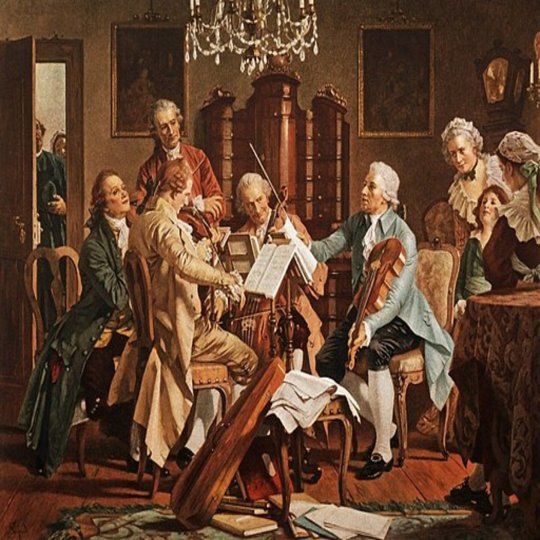
LWC: Great point and oh I do so agree. You must expose a child to classical music in utero. Can you please explain your Julliard training, simply because Julliard is regarded as the premier institution for the arts, but I have heard some say it’s out of touch as well as too demanding? What are your feelings regarding the Juilliard training?
AM: When I finished my bachelor's degree in music history from SUNY-New Paltz, I wanted to "test the waters" at Juilliard, so I took a couple of "survey-style" music history courses between the autumn of 2003 and the spring of 2004. I knew for a fact that there would be sons and daughters of United Nations diplomats who could blow me away with my level of piano technique, but I continued and soon persevered. I believe that Juilliard is becoming a lot more progressive while maintaining its standards. However, since Juilliard is a school of music, dance, and drama, the institution is surely asking itself, how are we providing foundations for the performing artists of the future?
LWC: As they should be. I had private vocal classes at Juilliard for Broadway Voice lessons and I am an alumnus of AMDA (American Musical & Dramatic Academy) so there is definitely a reputation to uphold but also a changing young artist of today that now sees celebrity as an influencer of Tik-Tok or IG which may not be necessarily disciplined professionally in art (performance, vocal, acting, or dance). As a conductor of music explain to the readers what that requires and also if you can the importance of the conductor to an orchestra.
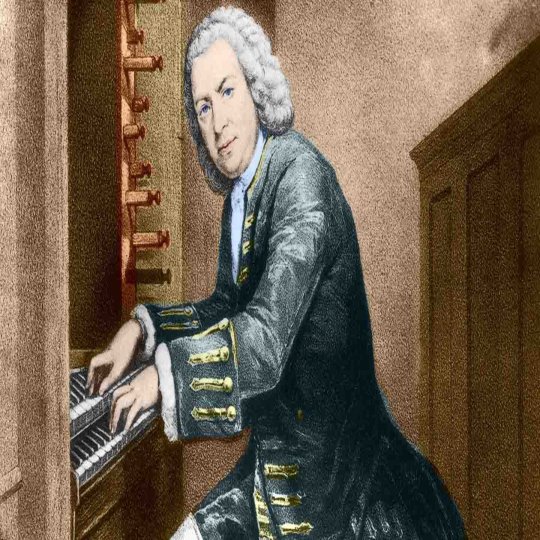
AM: My opinions are certainly subjective, so I think it is very important to keep in mind that performers around the world, whether playing, singing, or doing both, perform the great majority of music without sheet music and may average 5 minutes in length. If someone decides to become the conductor of a large ensemble, such as a chorus or a band, or an orchestra, it is really important to be an all-around musician. They must know Solfege {note: Solfege, also called “solfeggio” or “solfa,” is a system where every note of a scale is given its own unique syllable, which is used to sing that note every time it appears.} Harmony, Ear training, Score Reading, and Composition; and these are some of the skills that they’ll need along with knowledge of historical performance practice, including contemporary special effects. They will need to have a great voice with great vocal skills, great keyboard skills, and a great understanding of how all instruments work with their ranges and strengths. As a conductor, you should be able to perform as a soloist with your major ensemble, your right-hand technique should be impeccable with changing meter, whether or not you use a baton and your left hand should also be excellent with entrances, releases, and dynamics. Ensembles that intentionally rehearse and perform concerts without a conductor, such as the Orpheus Chamber Orchestra, may use open-ended questions when reaching collective decisions on the compositions they are working on.
LWC: Oh wow, thank you for your considerate response to the question. So for anyone of our readers who is interested, there is everything that you should be considering above. Alex, who is your favorite composer, and why is this person your favorite composer(s)?
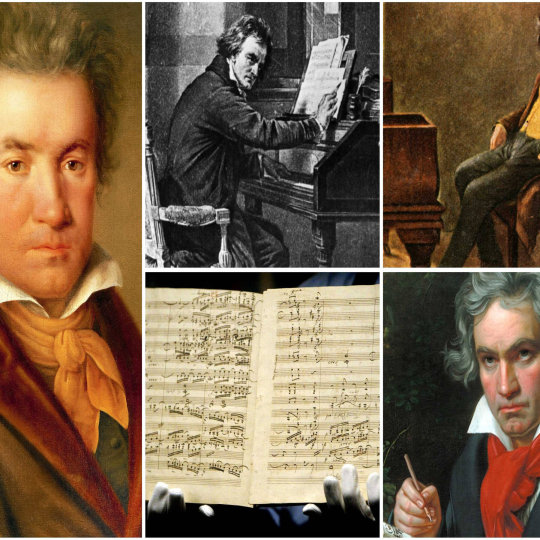
AM: While (Johann Sebastian) Bach is my favorite composer, I am being very open-minded about listening to as many different composers as possible. My Composer Advocation Project (CAP) involving the Committee on Cultural Inclusion (CCI) for the College Music Society (CMS) features contemporary works by contemporary musicians in the USA and around the world.
LWC: What composer inspired you to become a musician? Was it a classical or mainstream musician?
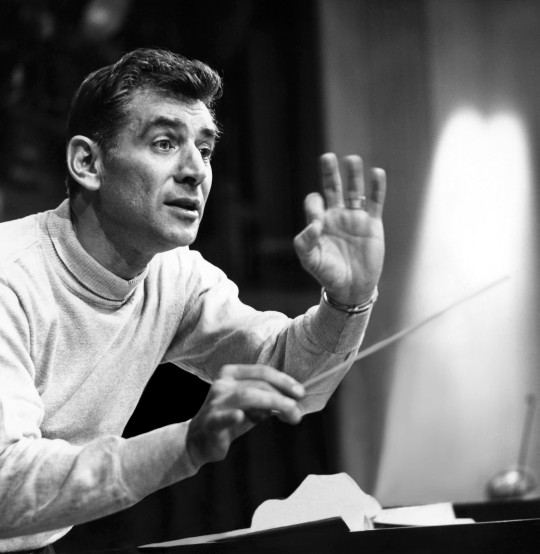
AM: I believe that in the USA, Leonard Bernstein made a tremendous impact on the classical music world as a composer, conductor, pianist, educator, and author. I really like the fact that he knew what was happening in the worlds of ballet, drama, musical theater, and pop music of the 1950s through the 1980s.
LWC: What mainstream artists do you listen to, if any?
AM: Although I do not do enough of this, I really enjoy listening to jazz, Latin, and electronic dance music.
LWC: Really? You’ve just given some flashbacks with the EDM (Electronic Dance Music) association because now I’m thinking of the Lee Curreri ‘1980s character from Fame (movie and TV show) Bruno, who was classically trained but alternately inspired by the use and experimentation of synthesizers. But alas, I grew up loving theater; my favorite musical scores are Man of La Mancha and West Side Story. Do you have a favorite musical theater soundtrack?

AM: Going back to Leonard Bernstein, I believe West Side Story is a great combination of the classical, jazz, and Latin styles of the 1950s.
LWC: Thank you so much. Now please promote yourself to the readers, and where can I find you for private piano instruction?
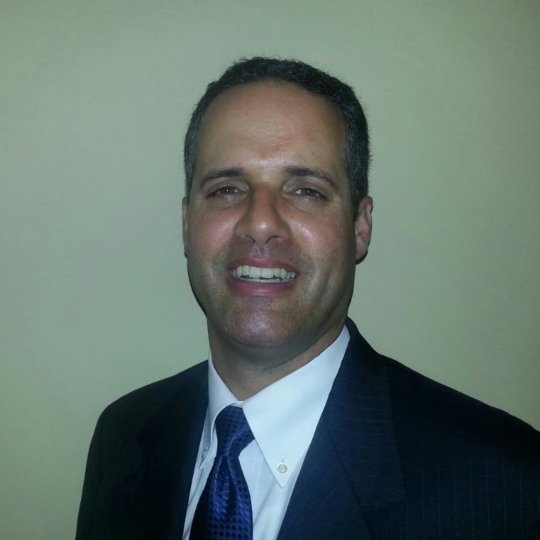
AM: Although I prefer to drive to the homes of my students in Orange County, New York State to have piano lessons with them, I also offer instruction remotely online. I can be reached via LinkedIn at Alex Marrero/Private Teacher/Classical Piano Lessons I teach students music through the piano and in that order. I will close with my own quote:
"The more creative we are, the more human we will be..."
I send my best wishes to everyone. With great hope, Alex Marrero Thank you, Levi!
LWC: Bravo, my friend, bravo. Thank you very much for that and all of your shared wisdom. And there you go, all of you future musical enthusiasts. Please link up with and follow musician, Mr. Alex Marrero and tell them that BOSS (Black Owners Seeking Success) sent you. J
Editor, Journalist
Levi Wise Kenneth Catoe Jr.
pw.org/directory/writers/levi_kenny_fame_catoe_jr
Thank you for following BOSS
Please Subscribe for all our latest news updates.
0 notes